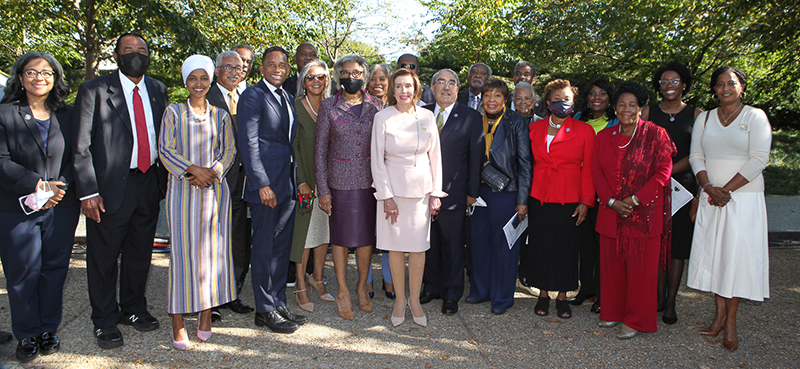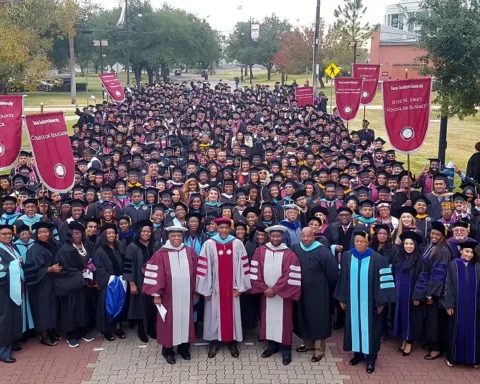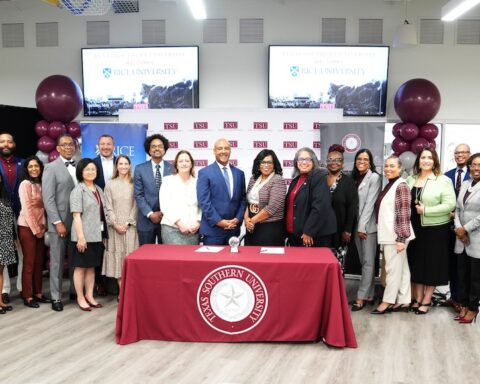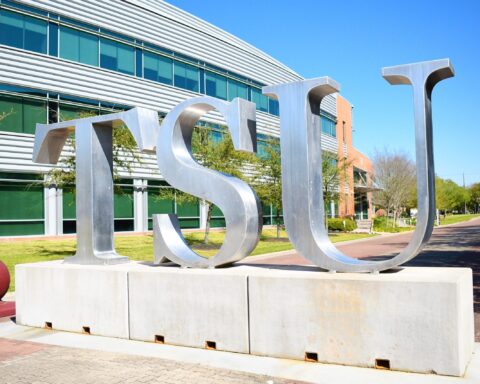By Texas Southern University
Harry E. Johnson is a career lawyer, entrepreneur and public servant with a rich history with Texas Southern University and the legacy of Dr. Martin Luther King Jr. Serving as President and CEO of the Washington, D.C. Martin Luther King Memorial Foundation, he played a large role in establishing the iconic memorial.
Harry received his Doctor of Jurisprudence from Texas Southern University and taught at both the Thurgood Marshall School of Law and School of Public Affairs. We asked him about his leadership positions and about MLK’s lasting legacy.
1. What were some of the highlights of your time serving as President and CEO of the Washington D.C., Martin Luther King Jr. National Memorial Project Foundation, Inc.?
Some of my highlights were meeting with various supporters and people who wanted to see the Memorial erected on the Mall – people from all walks of life who felt a serious connection to the project and Dr. King’s vision of a better world for everyone. People like every living President of the United States, members of Congress, corporate leaders and Civil Rights leaders…everyone wanted to touch this project.
2. What was your vision for the Martin Luther King Jr. National Memorial and what does it mean to you today?
When the men of Alpha Phi Alpha Fraternity conceived the idea of building a memorial in honor of Dr. King, they wanted it to be a place on the National Mall where people of color would see someone like them. In these 10 short years, it has become much more! It has actually become the fifth-most-visited memorial on the mall with well over 3.2 million visitors each year. We like to say that “it is a place where world leaders come to reflect, and a younger generation comes to learn how to lead.”
What I mean by that is at any given time you will see not just the President of the United States but world leaders. Prince Charles and other Kings and Queens have come to the Martin Luther King Jr. Memorial. In fact, just this past October as we celebrated the 10th anniversary of the opening, we hosted President Biden, Vice President Harris, Speaker Pelosi, Congressional Members including Al Green and Sheila Jackson-Lee, and state leaders such as Borris Miles. Having that succession of leadership only occurs at the State of the Union address……yet it happened at the MLK Memorial.
3. What are you most proud of about the Martin Luther King Jr. National Memorial Project?
I am most proud of what it stands for…. democracy, justice, hope and love. The memorial is more than a Stone of Hope, it is a living memorial, and we are so proud of the many programs that we have. Those programs are our Social Justice Fellows Program, Our MLK Global Youth Leadership Conferences (one of which will be held in April here at Texas Southern University) and our Conversation Series. I am also proud of the fact that we raised $127 million to build the memorial and made sure that women and minority-owned firms received more than 60% of the work.
4. What resonates most about Martin Luther King, Jr.’s life to you today?
The fact that he and others gave of themselves in order to perpetuate a more perfect union, not for themselves but for humankind.
5. What did it feel like to become National President of Alpha Phi Alpha Fraternity, Incorporated, the fraternity to which Dr. King belonged?
I was very proud to have become the 31st General President of Alpha, to be amongst the long list of luminaries who headed our fraternity. It was certainly an honor to say that you were the President of not only Dr. King’s fraternity but also the fraternity of Thurgood Marshall, Charles Hamilton Houston, Paul Robeson, W E B DuBois, William Lawson, Sylvester Turner, James Douglas, Al Green, Borris Miles and so many more distinguished members.
6. Why do you think it is important to have MLK Jr. Day and it be a Day of Service?
In my opinion it should not just be a day of service but one of action. In these turbulent times in which we find ourselves, we should be taking action on several fronts: voting rights, fair wages, health care, fair housing and economic parity.
7. As a Thurgood Marshall School of Law’s Alumnus of The Year, why did you choose Texas Southern University to earn your Doctor of Jurisprudence?
Certainly, because of its rich history and legacy but also because at TSU in general you have professors and staff who are dedicated to uplifting humankind and making a difference in the lives of others.





